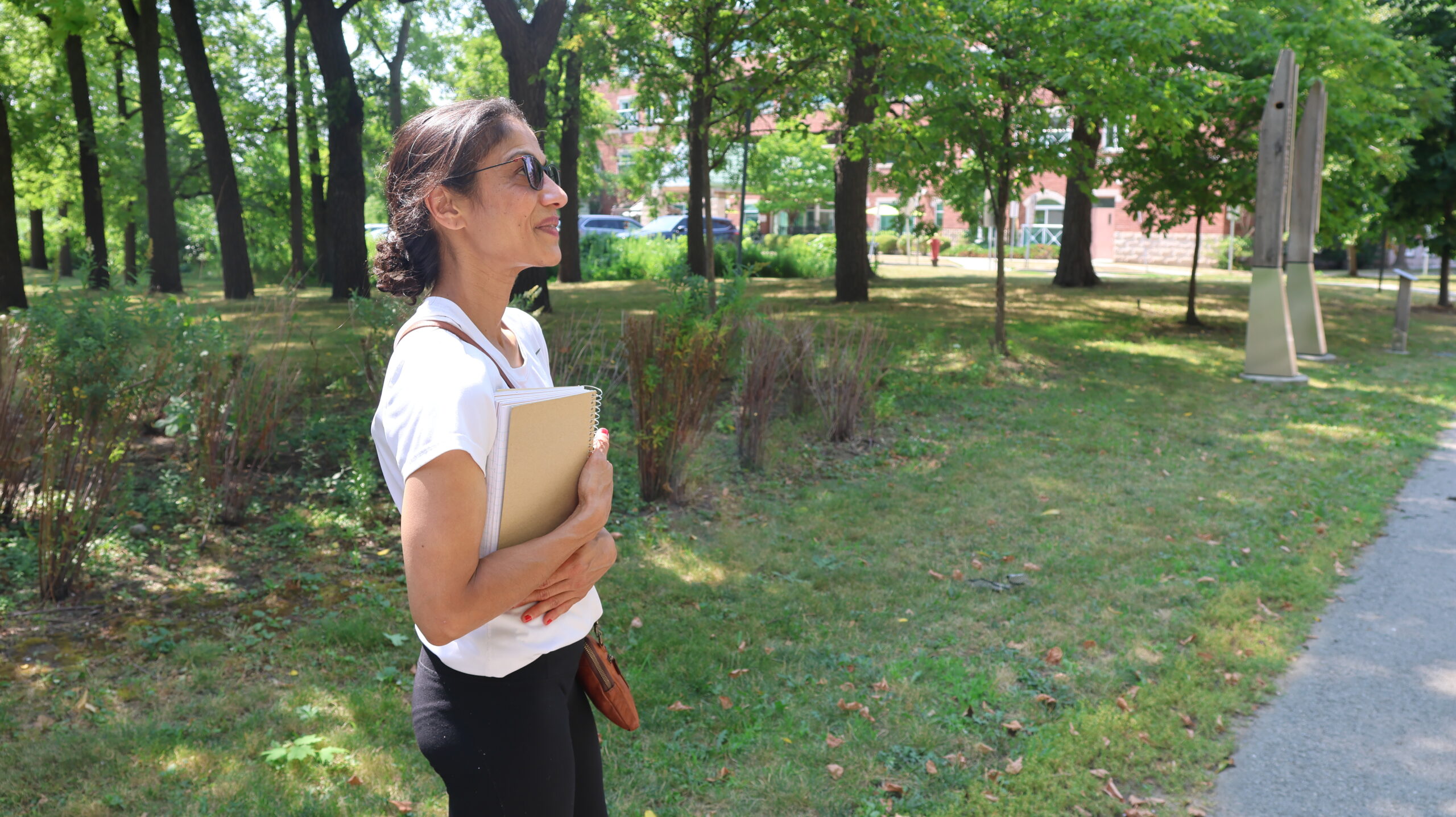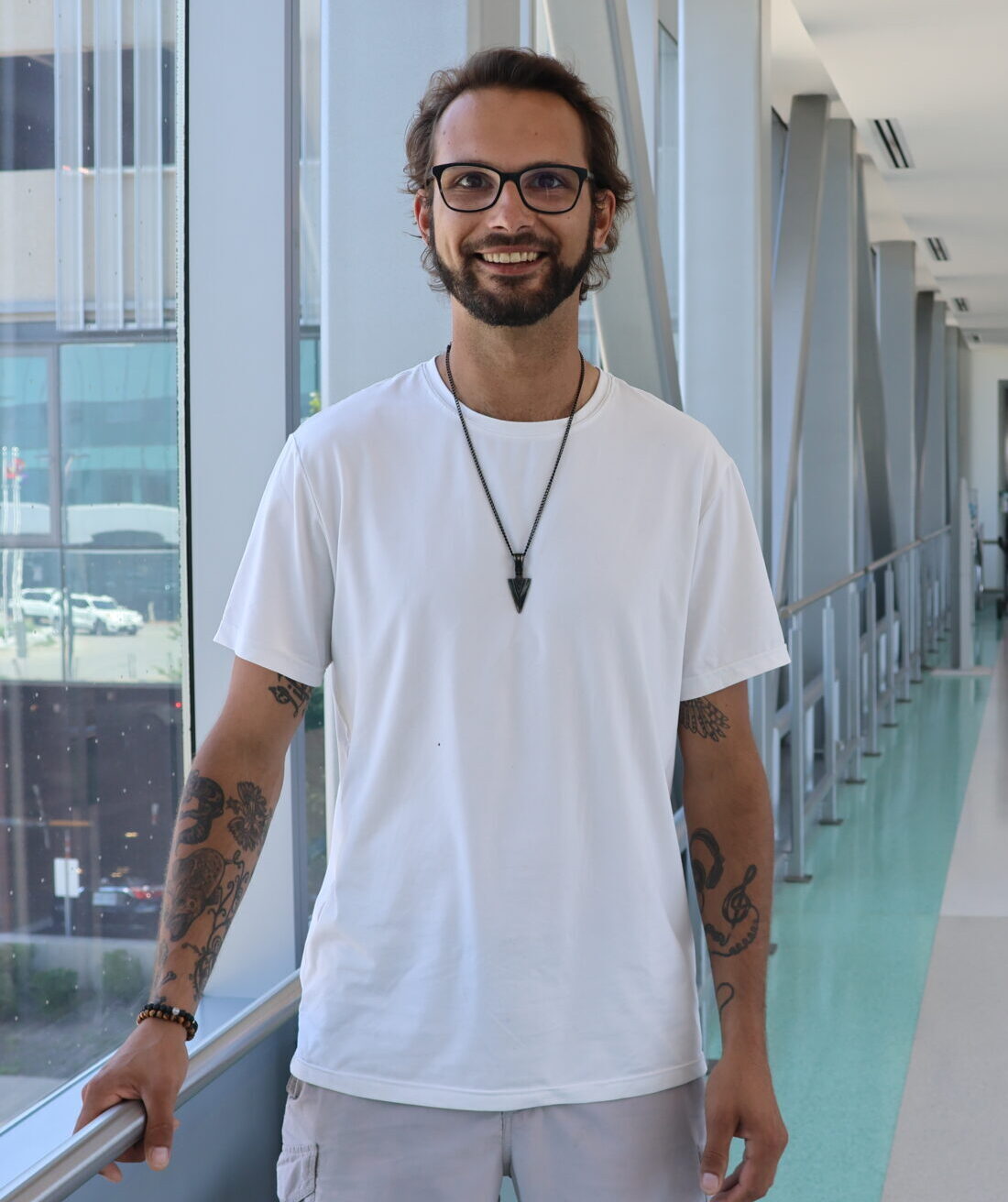In October 2014, Liz was diagnosed with advanced-stage inflammatory breast cancer—a rare and aggressive form of the disease that appeared suddenly, despite her healthy lifestyle and lack of risk factors. It was a shocking and frightening moment.
“I decided to accept my fate, get back to being the optimistic person I’ve always been and fight the greatest challenge of my life,” Liz said.
She faced her diagnosis with courage and dove into treatment. After ten intense months, she was blessed with four and a half cancer-free years. During that time, Liz and Mike embraced life to the fullest. They travelled, hosted friends, laughed often, and savoured every moment, always aware that each day was a gift.
In March 2020, the cancer returned—this time as stage 4 metastatic disease in both lungs. Even then, Liz met the challenge with strength and grace. She focused on joy, found beauty in everyday moments and remained grounded with the help of her care team at Joseph Brant Hospital (JBH).
Liz often credited her JBH medical team—doctors, nurses, and support staff alike—for helping her maintain hope and positivity even on the toughest days. Their expertise, compassion, and commitment to treating her as a whole person, not just a diagnosis, gave her confidence to face each treatment cycle. She leaned on their guidance, trusted their advice implicitly, and was uplifted by the genuine warmth and empathy they showed.
“Keeping a positive attitude didn’t stop the disease from progressing,” Liz once reflected, “but it helped me find happiness, joy, and appreciation in every new day I lived.”
In true Liz fashion, she decided to give back. She created Pink Power—a vibrant, humorous, and heartfelt blog she used to share her journey. She reminded others to live boldly, love deeply, and never stop fighting.
Liz’s family is deeply grateful for the vital, and compassionate care she received at Joseph Brant Hospital and wants every patient to have access to that same level of treatment and support. In her honour, Liz’s step-daughter-in-law, Joanne, is giving back through her gourmet cookie company, SnaxCo, donating a portion of sales from pop-up events at the hospital to support its most urgent needs.
“By supporting the Joseph Brant Hospital Foundation, we honour the doctors, nurses, and programs that made a difference in Liz’s journey, and we help ensure future patients receive the same high-quality care,” says Mike, Liz’s husband. “These contributions fund cutting-edge research, patient services, and enhancements to the hospital environment – so that no one faces cancer alone. Through this support, we aim to strengthen our community’s resilience, inspire hope for new breakthroughs, and keep Liz’s spirit alive in every life the Foundation touches.”
Liz believed in living boldly, laughing often, and finding gratitude even in hardship. She often reflected on the Dr. Seuss quote, “Don’t cry because it’s over, smile because it happened.”
Her legacy is one of courage, positivity, and generosity of heart. As you remember her, raise a glass to the adventures she cherished, the friendships she nurtured across oceans, and the countless lives she brightened simply by being herself.









